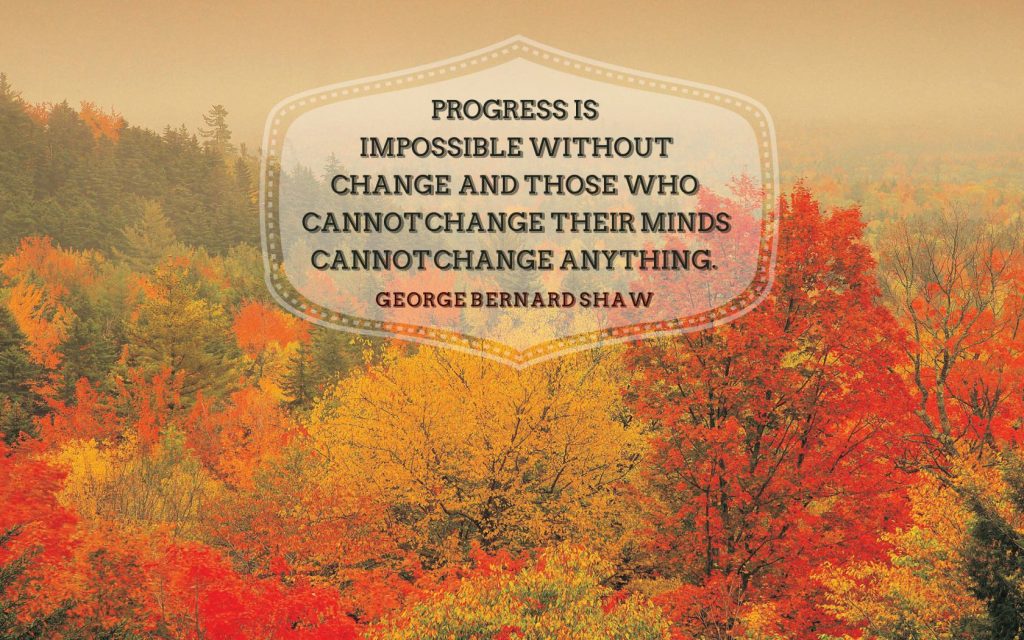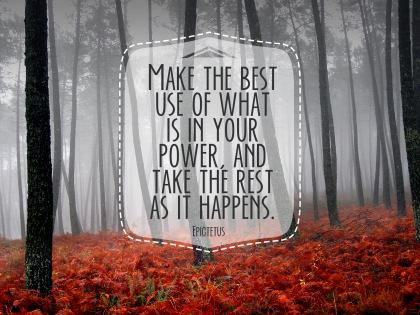The Miracle of Small Wins
Small wins pay off big. Social scientists and business experts agree that modest victories can provide major inspiration.
You may have heard of the progress principle. Researchers at Harvard Business School conducted a multi-year study of what makes employees happy and productive. They found that daily progress on meaningful work was the most powerful factor by far.
Take a look at the general principles behind this foolproof formula for success, along with practical examples about how you can apply a small wins strategy to your life.
General Principles Behind Small Wins
- Keep a journal. Writing in a journal will help you recognize and celebrate miniature milestones that you might otherwise overlook. You’ll also be able to track your progress and understand the conditions that affect your performance.
- Create catalysts. According to the Harvard team, there are two kinds of actions that encourage small wins. The first, catalysts, are related to how you work. Set clear goals, budget your time and resources, and practice open communications.
- Seek nourishers. The second kind of action is called nourishers, and refers to interpersonal support. Surround yourself with friends and colleagues who provide validation and constructive feedback. Participate in groups that share your interests, whether it’s a faith community or professional association.
- Set intermediate goals. Lofty goals can be overwhelming. Break any project down into tiny tasks. You’ll feel invigorated each time you check something off your to-do list.
- Learn from setbacks. The flipside of small wins is the discouragement that can follow running into an obstacle. Acknowledge your feelings. Turn mistakes into valuable lessons.
Practical Examples of Small Wins Strategies
- Eat more vegetables. Sticking to a healthy diet may be easier than you think when you focus on only one change at a time. Work your way up to 9 servings of fruits and vegetables a day. Mix spinach into your eggs at breakfast. Snack on baby carrots and hummus.
- Cut down on sugar. If you like sweetened coffee, use half your usual amount of sugar. The savings will add up.
- Go to bed on time. Adequate sleep keeps your body and mind in top condition. You’ll probably accomplish more even if you shorten your waking hours.
- Exercise for 5 minutes. Are you tired of lapsed gym memberships? You’ll be exercising for more than a half hour by the end of the week if you start with 5 minutes and add just 5 minutes a day to your home workouts.
- Memorize a few lines. Maybe you’d like to speak Russian or recite poetry, but your busy schedule gets in the way. Ty practicing just 5 vocabulary words or one stanza a day.
- Extend your network. Whatever you do for a living, networking is essential. Introduce yourself to a new contact or reconnect with a former colleague.
- Dazzle a customer. Similarly, you can make any work more meaningful by focusing on those who use your products or services. Give someone a sneak peek at your new line and ask for their feedback.
- Listen to your child. Show your child how much you love them by giving them your full attention. Empathize with their struggles in Algebra or congratulate them on making the soccer team.
- Surprise your spouse. Brighten your partner’s day with a fun surprise. Take out the garbage when it’s their turn. Put a love note in their briefcase or pick up a carton of their favorite ice cream on your way home from work.
Grand visions are the sum of many small wins that help you translate your dreams into action. Taking a small step forward each day will bring you success and happiness.

Create Your Own Bucket List
How many things have you done in the last five years that you consider to be meaningful? You can bet that you’ll have even more meaningful experiences over the next five years if you create a bucket list.
You might consider a bucket list to be silly or something that older people do, but it’s never too soon to start examining your life and prioritizing your time.
Create a bucket list that fills you with enthusiasm:
- Start with childhood. You had a lot of great ideas when you were a child. You’ve forgotten many of them or dismiss them as silly childhood dreams. Now is the time to dust them off and reconsider. What did you want to do and see as a child?
- Check out other bucket lists on the internet. You’ll be amazed at some of the things you’ll find that you’ve never considered. Get inspiration from others.
- Brainstorm. Take an evening to work on your list. Turn off all your electronic devices and allow your imagination to run wild. Write down everything that comes to mind without judging it. You can evaluate your list at another time. It might be easier to come up with ideas if you consider particular categories one at a time.
- Travel. Where have you always wanted to visit? Consider places near and far. Maybe there’s a famous burger joint in the next town or a state park you’d like to visit. Remember that the world is big, but largely accessible. In one day, you can find yourself anywhere on Earth.
- Sports. Have you ever wanted to try hang gliding or learn how to ice skate backwards? Run a marathon or try deep sea diving?
- Adventure. Ride a camel across the desert? Fly in a helicopter? Try your hand at zip lining? Ride across the US or Canada on a motorcycle? Swim with dolphins?
- Events. Maybe you’ve always wanted to attend a Super Bowl or watch the Rolling Stones live. Do you have a favorite comedian you’d like to see? Watch the northern lights? Watch a famous opera or ballet?
- Creativity. Write a book or song? Learn to play the banjo? Take salsa dance lessons?
- These are just a few ideas. What other categories come to mind?
- Give yourself a week to continue adding to your list. You’ll find that new ideas pop into your mind at random moments. Keep adding to your list and don’t worry about the length. You can pare it down to size later.
- Ask your friends for ideas. Find out what your friends would put on their bucket lists. You’ll get a few more good ideas, as well as a few suggestions.
- Prioritize your list. Rank your big list from most desirable to least.
- Make plans for this year. Starting at the top of your list, which items could you do this year? Unless you’re fortunate, you probably have limited time, financial resources, or both.
- Begin making plans anyway. Decide what you can do to overcome your limitations and put your plan into action. Once you’ve set an objective, it’s important to take a first step as soon as possible. Show yourself that you’re serious by making preliminary plans.
Now that you have a good bucket list, get busy crossing off items from your list! Making a bucket list is valuable because it requires you to think and prioritize. There’s not enough time to get it all done, so think carefully and rank your list items. Creating a bucket list can help ensure that your life is exciting and fulfilling.

Create a Life Plan and Stop Living on Accident
Do you consider yourself intelligent, capable, and kind? Is your life in perpetual chaos and you don’t understand why? It’s possible that you’re living your life on accident. Avoid allowing luck to rule your life. Put your foot down, make a plan, and choose a direction for your life.
Take responsibility for your future:
- Examine your current situation. How did you end up where you are? Are you living in the home or apartment you’ve always dreamt of? Why not? How did you end up there? Was it the result of long-term planning? Or was it the only place that you could find on short notice that would accept a $99 deposit because you were short of cash?
- Consider all aspects of your life. That includes your career, friends, fitness level, finances, intimate relationship, and so on. Did you choose what you have, or did you just grab at the best opportunity that happened to wander by your awareness?
- Determine the type of life you want to lead. What type of job do you want? Where do you want to live? How do you want to spend your evenings? How much money do you want to earn? Describe your social life. Take the time to thoroughly examine the future you’d like to experience.
- Put the first things first. Money isn’t the only thing, but it’s an important thing. Money is great for solving many of life’s challenges. It’s also a necessary resource for doing many other things. If you’re having financial struggles, it would make sense to work on your finances first.
- Make a logical progression for each part of your life you’d like to change. If you need to lose 100 pounds, going for a daily walk and eliminating high-calorie drinks would be a good start. After a month of walking, you could add in additional exercise and diet changes.
- Focus on financial and health issues first. After you’ve gained some momentum, you can address the other parts of your life.
- Be brave enough to choose. Why haven’t you made decisions about your life in the past? Is it possible that you were afraid to make a choice and possibly fail? It’s true that you can’t fail if you never try, but you can’t ever experience success and happiness either.
- Have enough discipline to choose. When you’re confused and uncertain, it feels easier to avoid making decisions. You don’t want to make the wrong decision after all. However, this type of thinking is a trap. It’s better to make a reasonable choice and give it your best effort than it is to not make a decision at all.
- Realize that luck isn’t on your side over the long-term. When you don’t put energy into something, it will tend to fall apart over time. Whether you’re talking about a fence, a sand castle, or your life, luck isn’t kind. The natural way of the universe is to move from ordered to disordered.
- The only cure is concentrated effort and energy. A wooden fence only survives if you repair it and paint it at regular intervals. Even then, it will still have to be replaced at some point. Your life is no different. Without energy and intention applied regularly, your life falls apart just like the fence.
Now is the time to take control of your life and make decisions that matter.
Choose a course for your life or allow entropy to slowly destroy it. Take control while there’s still time to create an exciting life.

11 Smart Strategies That Help You Discover Your True Talents and Skills
Do you know all of your talents and skills? Unless you’ve spent a lot of time pondering and investigating, you have many talents and skills that may have eluded your awareness. Some of your greatest abilities might still be a mystery to you! You can find them with a little work.
Try these techniques to find your hidden talents and skills:
- Revisit your early years. What did you like to do before you learned to care about what others thought? What did you enjoy? What were you good at? What did you want to be when you grew up? There’s a good chance you’ll remember a talent or two that you forgot all about.
- Spend some time alone. When your surroundings change, your perspective changes. Go to the park or spend the weekend camping. Take a trip and get out of town for a couple of days. You’ll generate new ideas.
- Take a test. There are several personality, interest, and skill assessments available online. It’s important to answer as honestly as possible if you want an accurate assessment. Take several assessments and look for commonalities. It’s likely that you can determine several strengths from the areas that overlap.
- Ask others what they think. Ask your closest friends and family members what they think are your greatest strengths and talents. You know things about your friends they can’t see for themselves. The same is true of you. Be receptive to the ideas you receive.
- Make a list. Think about the amazing things you’ve accomplished in the past. What talents and skills did you use to make those things happen? After completing this exercise with all of your accomplishments, do you see a common theme? There’s a lot to be learned from your past accomplishments.
- What is unique about you? How do you stand out from your friends, family, and coworkers? What’s special about you? This is another great question to ask those around you.
- What do you enjoy? If you had a free afternoon to yourself, how would you spend it? Would you spend a free day working on your classic car or build an electronics project? Would you build a webpage? Your strengths often lie in your interests.
- What do you like to talk about? Is there something you’re so passionate about that your friends wish you’d quit talking about it? Which topics do you think make for interesting conversation?
- When do you lose track of time? Do you lose track of time while your painting? Writing? Woodworking? The things that fully engage your mind can be related to your strengths.
- What’s easy for you? What do you find easy that others find hard to do? You can do at least a few things better than just about everyone you know.
- If you had to go back to school, what would you choose as your major? Math? You’re probably good at math, abstract concepts, and solving problems. Creative writing? You likely have strengths in writing, reading, creativity, and imagination. What would you like to study if you had the time, money, and motivation?
It’s important to know your strengths and talents. You’re in a better position to make money, be successful, feel confident, and contribute to the world when you use your strengths and talents to your advantage. If you feel that you have more to offer the world than you’ve been demonstrating, you’ll benefit from discovering your hidden skills and talents.

A Beginner’s Guide to Using Writing Therapy to Enhance Personal Growth
What do you do when you’re feeling sad or low? Maybe you reach out to friends or stay in bed watching your favorite series on TV.
Have you ever considered turning to writing as a therapy?
Studies have shown that those who write about their most traumatic or stressful experiences experience better health outcomes.
The stories we tell ourselves give us meaning in our lives. Writing therapy helps you explore the stories you tell yourself, the feelings associated with those events, and what meanings we can draw from events.
Writing can be a powerful, low-cost, and easily accessible therapy. Getting your thoughts and words onto pages empowers you to work through difficulties.
Writing therapy can help you sort through your stories and feelings around grief, anxiety, life transitions, or even stress. Writing therapy gives you a safe space to track your progress and self-reflect.
While writing may not always be a complete replacement for therapy, it’s still a tool you can use to work through your thoughts. It’s also a tool that can complement your regular therapy appointments.
Writing therapy is a guided way for you to interact with and analyze events that happen in your life. Through writing therapy, you explore your beliefs around those events – and how your beliefs might trigger certain feelings.
Follow these journal prompts to start exploring your thoughts:
- Start your day with Morning Pages. Morning Pages, a daily practice popularized by Julia Cameron, are three pages of unfiltered writing. This daily practice of filling three pages with your unfiltered thoughts can help clear your mind to start the day fresh.
- The WDEP Model (Wants, Doing, Evaluate, Plan). The WDEP Model can help you think about what you want and whether or not you are making the choices needed to get what you want. It can help you feel more in control about your daily decisions.
- Wants. What do you want?
- Doing. What are you doing to get what you want?
- Evaluate. Is what you are doing helping you get to what you want?
- Plan. Can you make a more effective plan to get what you want?
- The ABC Model (Activating Event, Beliefs, Consequences). We tend to think that activating events leads to consequences. This can help you explore your beliefs and reflect about your emotions.
- Activating Event. The event that triggers an emotion or thoughts.
- Beliefs. What you believe or think about the activating event. Our beliefs are the part that often subconsciously get overlooked.
- Consequences. The emotions we feel as a result of the activating event and our beliefs.
- Self-Contract. Do you want to change something in your life? What do you want to change? Write a contract to yourself about how you will make changes in your life to reach your goal.
- Love letter to yourself. How often do you appreciate and acknowledge yourself? Writing yourself a love letter, or letter of gratitude, can be a great space for you to build a positive relationship with yourself.
- Gratitude. Studies have shown that gratitude has a positive impact on a person’s well-being. Integrating gratitude journaling into your routine can increase your happiness and well-being.
Writing therapy can be a great tool to investigate your feelings or reflect about what you want in life. You can use writing therapy as a tool to fuel your own personal growth.
Exploring your beliefs and feelings using the journal prompts above can help you work through difficult emotions. By giving yourself a place to process your feelings, you’re giving yourself the opportunity to be happier and healthier.
This practice can be an empowering form of self-care! Try it today and feel the difference!

-
-
-
-
-
-
The Psychedelics Integration Guidebook: Navigating Transformational Experiences for Personal Growth
Mostly ChatGBT (I will eventually clean it up) The use of psychedelics for personal growth and healing has gained significant attention in recent years. This guidebook aims to provide valuable […]
No responses yet